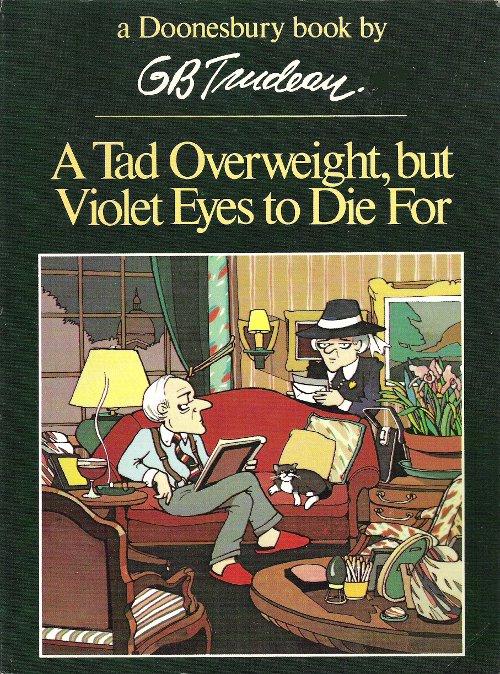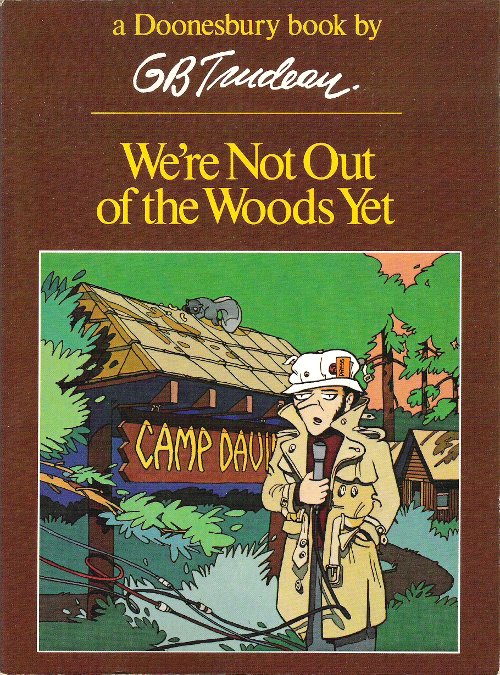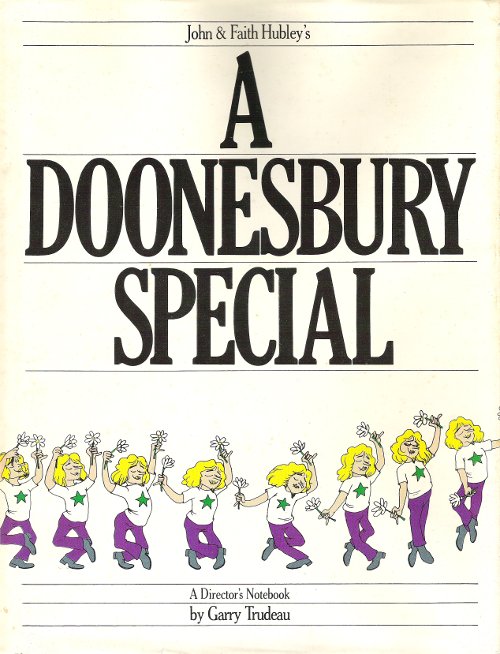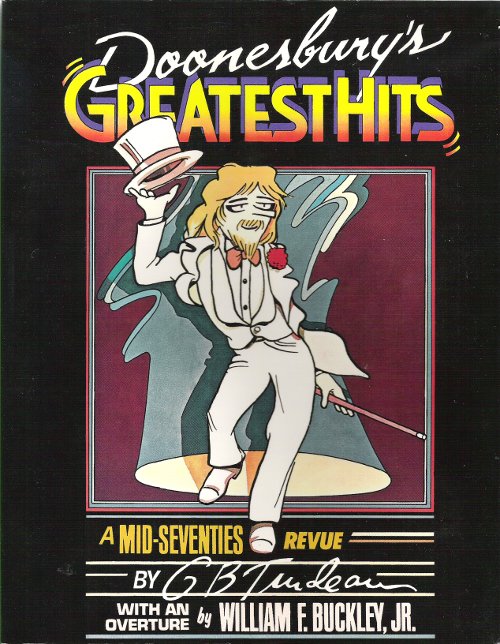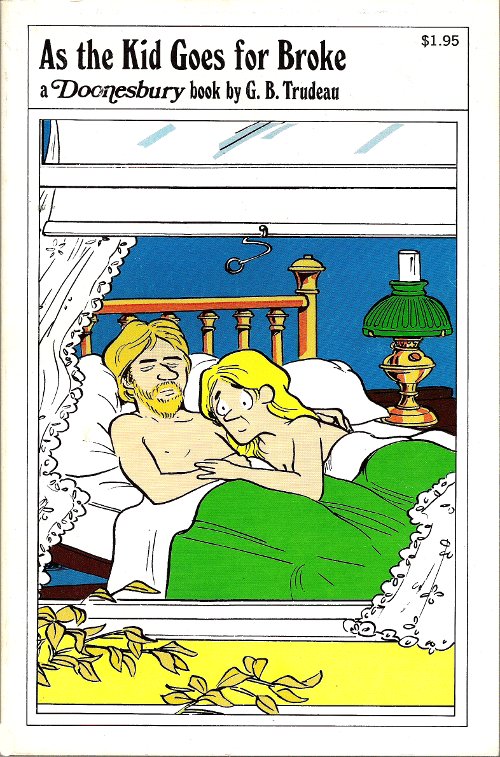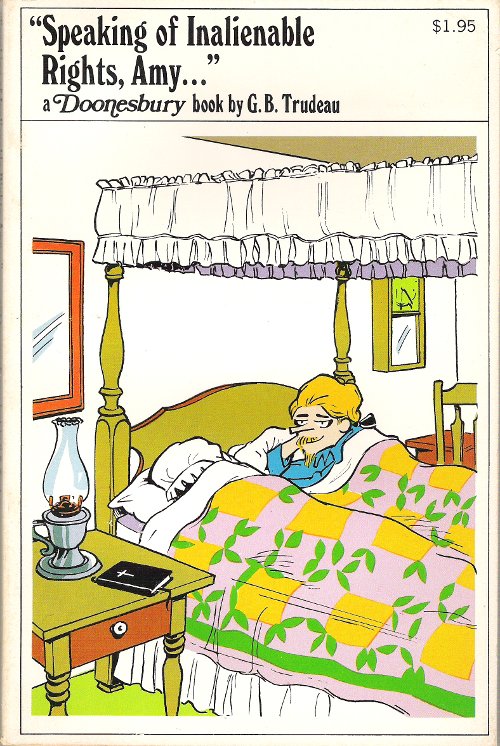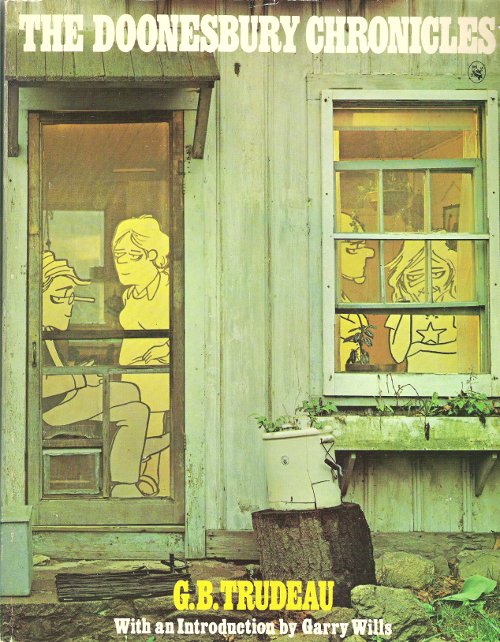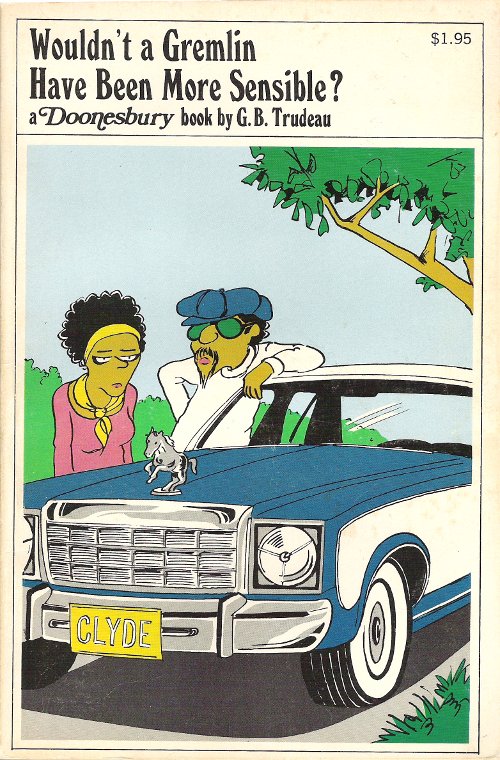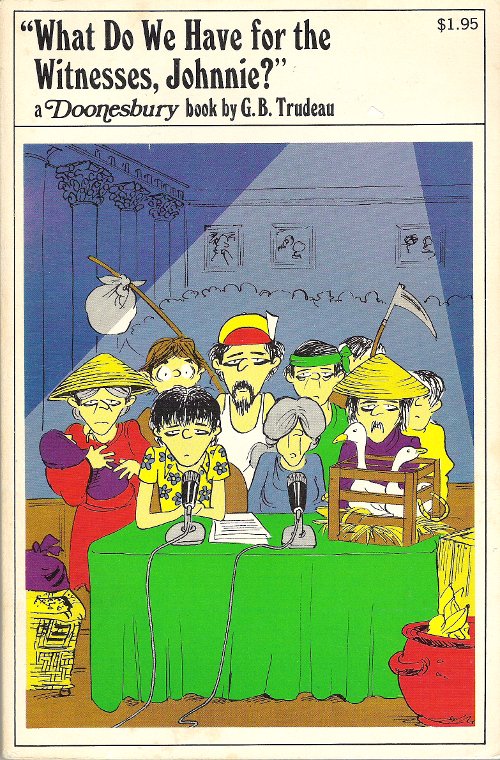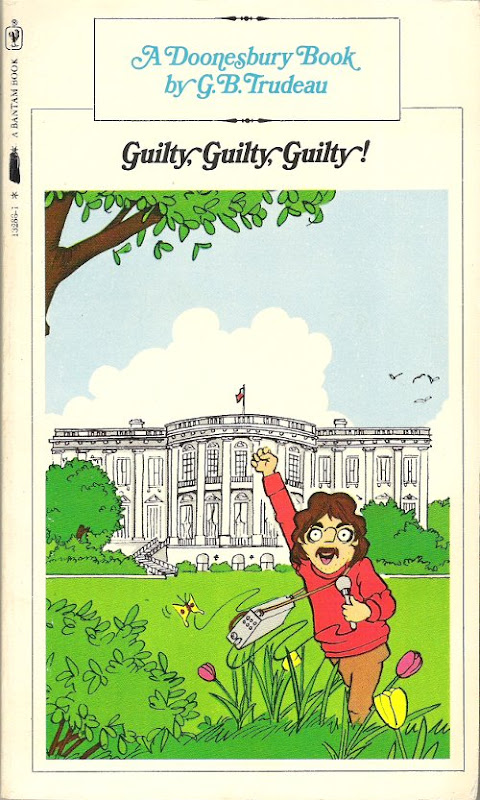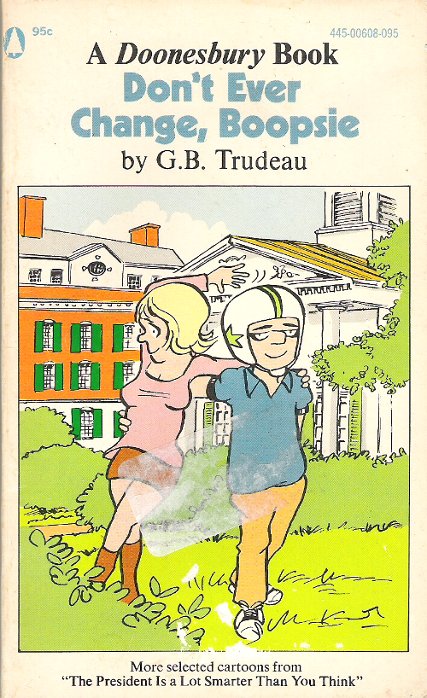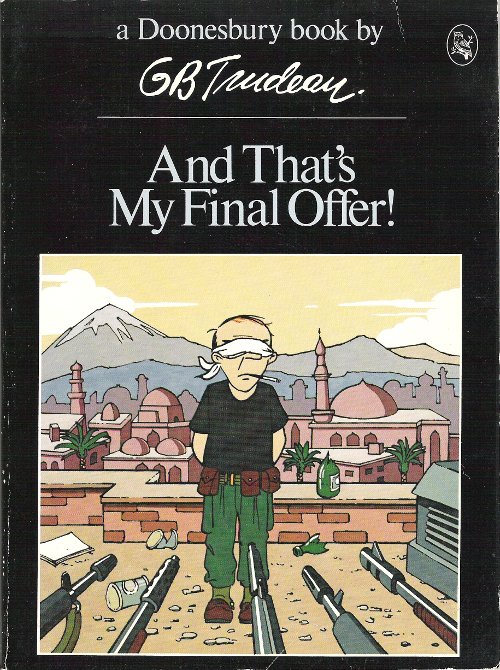
This collection overlaps with the previous book and reprints 124 daily strips from:
June 18 1979 to July 7 1979
July 23 1979 to August 4 1979
August 27 1979 to December 29 1979
*August 6-26 were repeat weeks.
14 strips from these blocks are not included (see comment for list).
This book again juggles the order of the strips around, in order for the first three weeks of Duke’s latest misadventure can run with the rest of the saga. This time out, Jim Andrews hires Duke to go into Iran and make a payoff to an operative named “Dipstick” in order to keep the oil flowing during the chaos of the Islamic Revolution. Naturally, it is a disaster.
Duke’s caretaker Zeke Brenner is finally seen on-panel on June 25, and it is later established that he’s the fiance of the newest major addition to the cast: Joanie’s daughter J.J., who looks up her mother after she had split seven years previously. Joan Jr. begins her undergraduate career at Georgetown, rooming with Honey. After Zeke has Duke declared dead, Zonker, who’s found the White House quite unconcerned what might have happened to the former US Ambassador to China, has to fly out to Colorado to take care of his estate.
In national news, Rosemont Indiana is hit by a major media event as candidates for the 1980 election, and hundreds of reporters, descend on the town. Dr. Henry Kissinger releases an enormous book, and the Seventies come to a spectacular end with a Revival Party at Walden.
(As the 1970s end, so does this format for the blog... when I resume, I'll just be detailing the printed stories and not determining what was excised. Too much work! Bleah!)
